Domestic Wasp Removal
Wasps can be a real nuisance, especially when they invade our homes and gardens. Whether you’re trying to enjoy a peaceful afternoon in the garden or go about your daily routine at home, the presence of wasps can quickly become stressful and dangerous.
As a trusted pest control company in Nottingham, we understand how unsettling it can be to have wasps nearby, and we’re here to help you deal with the problem in a safe, efficient, and environmentally friendly way.
Wasps Causing a Buzz?
Let’s make it their last sting.
Book your free wasp nest survey today
Our Clients…
Experts in Household Wasp Removal
With over 20 years of experience dealing with wasp removal, we handle wasp infestations in all sorts of domestic settings.
Aside from removal, we also offer tips on prevention to keep your home and garden safe year-round.
The Problems Wasps Pose
Wasps are more than just an annoyance – they can pose real risks to your health and safety. They can become aggressive, particularly if they feel threatened, and their sting is painful and, in some cases, can lead to severe allergic reactions. In addition, wasps build their nests in hard-to-reach places which can make removal difficult and dangerous for homeowners.
In a domestic setting, the problem is often two-fold: wasps may cause harm to people and pets, and they can also damage your property. A wasp nest located in a garden or near your home can prevent you from enjoying outdoor activities or even create a constant feeling of unease. That’s where our expert wasp control services come in.
How We Handle Infestations in Your Home and Garden
Our goal is to quickly and safely eliminate any wasp nests from your property while minimizing disruption to your daily life. We use proven pest control methods that are tailored to each situation, ensuring that your home or garden is free from wasps. Our team of skilled technicians uses professional-grade equipment and safe, effective insecticides that target the nest without harming the environment.
When you contact us for help with a wasp problem, we begin by assessing the situation. We’ll locate the nest, determine the level of infestation, and develop a treatment plan that best suits your needs. In many cases, we can safely remove the nest in a single visit, providing you with peace of mind knowing the problem is under control.
Why Choose UPC Group
With our professional pest control services, you can rest easy knowing that your property is safe from wasp infestations.
We offer quick, safe, and effective solutions to remove wasps and prevent them from returning. We’re here to help you enjoy your home and garden without the worry of wasps.



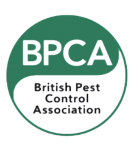
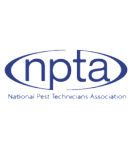


Facts About Wasps
The Biology of Wasps
Wasps are part of the insect family Hymenoptera, which also includes bees and ants. They have a narrow waist and two pairs of wings, and unlike bees, they don’t lose their stinger after use. Wasps are social insects, and they live in large colonies that consist of a queen, workers, and drones.
- The Queen: The queen is the only fertile female in the colony. She starts the nest in the spring, laying eggs that develop into workers. As the season progresses, she begins laying eggs that turn into new queens and drones.
- Worker Wasps: These are the female wasps that do all the work – building the nest, gathering food, and defending the colony.
- Male Wasps (Drones): The male wasps’ primary role is to mate with the queen. Once their job is done, they typically die in late autumn.
As the weather cools in the Autumn, the colony will die off, and the queen will hibernate until the following spring. This is why wasp problems are typically seasonal, but it also means that addressing an infestation quickly is crucial to preventing an aggressive increase in numbers.
Advice on Controlling Wasps
Facts About Wasps
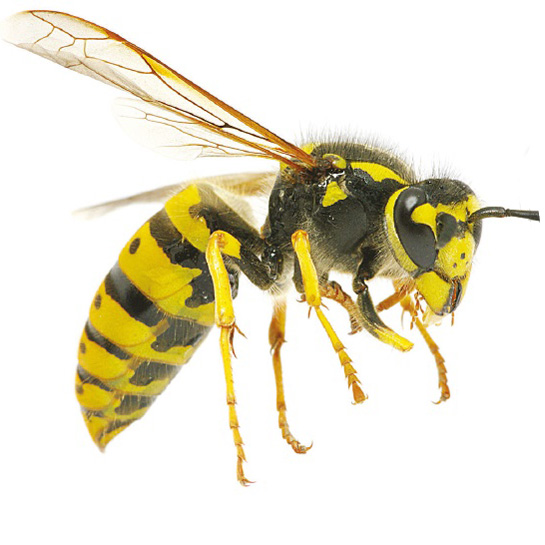
Wasps have their benefits
While they can be pests, they also play a role in controlling other insects such as caterpillars. They are also important pollinators. However, when they invade domestic spaces, they can cause more harm than good.
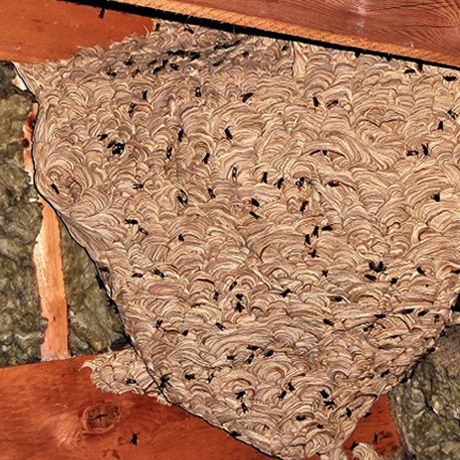
Active Seasons
Wasps are most active in late summer and early autumn, as this is when their colonies reach full size. This is also when they’re most likely to become aggressive as they search for food.
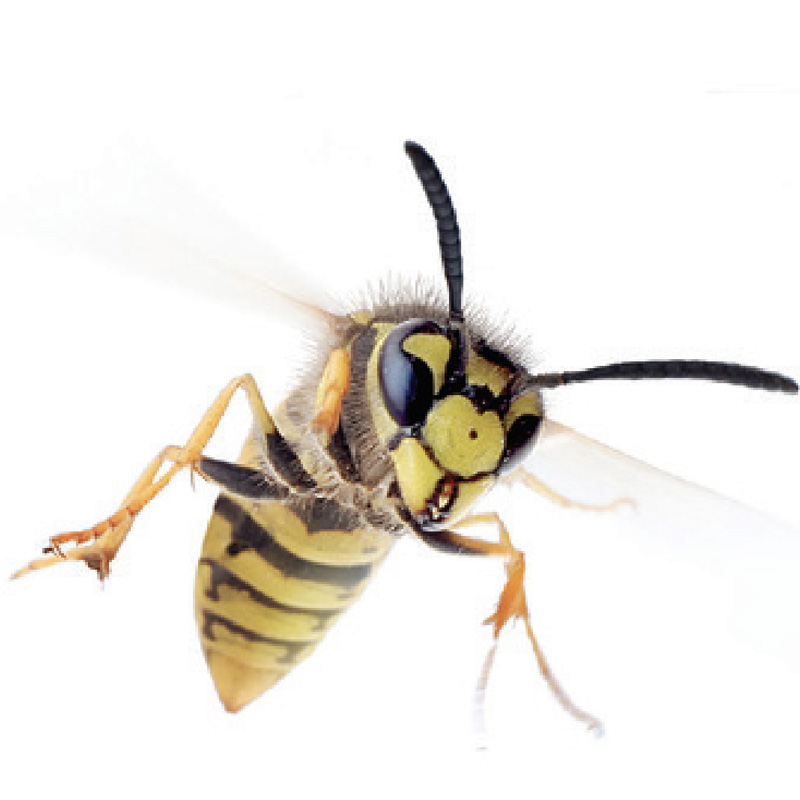
Aggression
Unlike bees, wasps can sting multiple times without dying, which makes them more dangerous. If you feel threatened, they may become more likely to sting, particularly when protecting their nest.
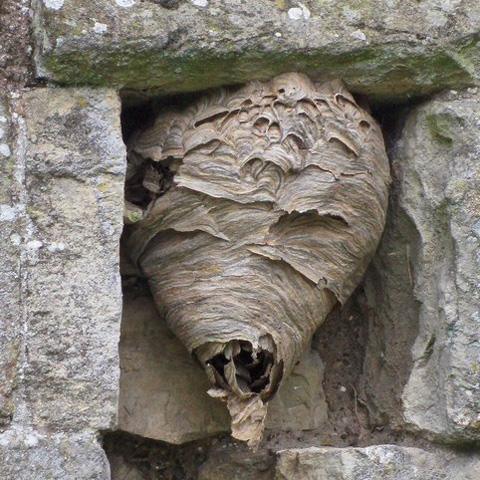
Nest Size
A wasp nest can contain thousands of wasps by the end of the summer. If you spot a wasp flying around your home or garden, there’s a good chance they’re looking for food to feed the growing nest.
The Biology of Wasps
Wasps are part of the insect family Hymenoptera, which also includes bees and ants. They have a narrow waist and two pairs of wings, and unlike bees, they don’t lose their stinger after use. Wasps are social insects, and they live in large colonies that consist of a queen, workers, and drones.
- The Queen: The queen is the only fertile female in the colony. She starts the nest in the spring, laying eggs that develop into workers. As the season progresses, she begins laying eggs that turn into new queens and drones.
- Worker Wasps: These are the female wasps that do all the work – building the nest, gathering food, and defending the colony.
- Male Wasps (Drones): The male wasps’ primary role is to mate with the queen. Once their job is done, they typically die in late autumn.
As the weather cools in the Autumn, the colony will die off, and the queen will hibernate until the following spring. This is why wasp problems are typically seasonal, but it also means that addressing an infestation quickly is crucial to preventing an aggressive increase in numbers.
Advice on Controlling Wasps
- Stay Calm: If you encounter a wasp, try not to provoke it. Stay calm and move away slowly. If you’re near a nest, leave the area immediately and avoid swatting at the wasps, as this may trigger a defensive response.
- Secure Your Home: Ensure that windows and doors are properly sealed, and check for gaps in walls, eaves, or roof spaces where wasps could enter. Wasps are often attracted to sugary substances, so keep food covered when eating outside and clean up crumbs or spills.
- Avoid Strong Scents: Wasps are attracted to perfumes and sweet-smelling lotions. If you’re spending time in the garden, try to avoid wearing strong scents that may draw them closer.
- Monitor Areas with Previous Nests: If you’ve had a wasp problem before, keep an eye on those areas in the spring. Early detection can prevent a full-blown infestation later in the year.
Advice on Preventing Wasps
While we can help with immediate wasp control, it’s important to take steps to prevent future infestations. Here are some tips for keeping wasps away from your home and garden:
- Remove Potential Nesting Sites: In spring, check your property for any signs of wasps starting to build nests. If you notice small, paper-like structures, remove them before they develop into full-sized nests.
- Wasp Traps: Consider setting up a wasp trap in areas where you’ve experienced issues before. These traps attract wasps and prevent them from establishing nests on your property.
- Keep Outdoor Spaces Clean: Wasps are attracted to food and drink, so ensure that outdoor areas are clean and free from leftovers, sugary drinks, and fallen fruit from trees.
- Call the Experts: If you spot a nest or suspect a wasp infestation, it’s always best to consult a professional pest control service. DIY methods can be risky and ineffective, particularly when dealing with large or hidden nests.
Areas That UPC Group Covers
Trusted local pest control services for a safe and comfortable home across the East Midlands.
Latest News
No posts
Stay Informed – Sign Up to Our Newsletter!
Get expert advice, seasonal tips, and the latest industry updates straight to your inbox.
Stay ahead with essential insights from our specialists.
Get in Touch Today
Don’t let wasps take over your home or garden. Contact us today for friendly wasp removal across the East Midlands.























